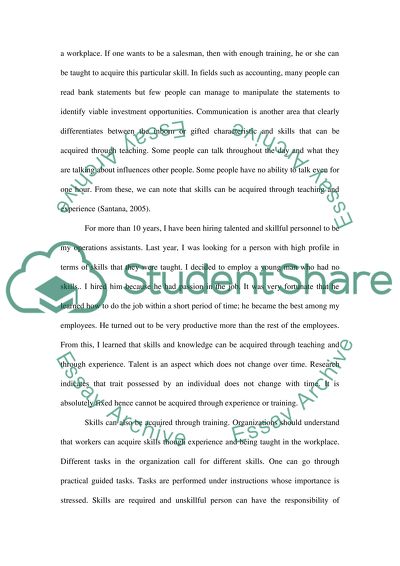Cite this document
(Knowledge and Skill as a Key Elements in an Individual that Are Term Paper, n.d.)
Knowledge and Skill as a Key Elements in an Individual that Are Term Paper. Retrieved from https://studentshare.org/human-resources/1555229-are-knowledge-and-talent-skills-that-can-be-taught-in-the-workplace-or-are-they-only-acquired-from-experience
Knowledge and Skill as a Key Elements in an Individual that Are Term Paper. Retrieved from https://studentshare.org/human-resources/1555229-are-knowledge-and-talent-skills-that-can-be-taught-in-the-workplace-or-are-they-only-acquired-from-experience
(Knowledge and Skill As a Key Elements in an Individual That Are Term Paper)
Knowledge and Skill As a Key Elements in an Individual That Are Term Paper. https://studentshare.org/human-resources/1555229-are-knowledge-and-talent-skills-that-can-be-taught-in-the-workplace-or-are-they-only-acquired-from-experience.
Knowledge and Skill As a Key Elements in an Individual That Are Term Paper. https://studentshare.org/human-resources/1555229-are-knowledge-and-talent-skills-that-can-be-taught-in-the-workplace-or-are-they-only-acquired-from-experience.
“Knowledge and Skill As a Key Elements in an Individual That Are Term Paper”. https://studentshare.org/human-resources/1555229-are-knowledge-and-talent-skills-that-can-be-taught-in-the-workplace-or-are-they-only-acquired-from-experience.


